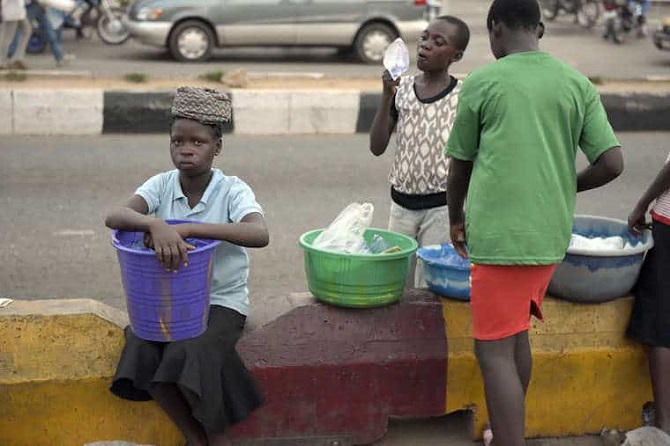The Federal Government announced that the number of out-of-school children in Nigeria has dropped from 13 million to 6.9 million in 2020. It added that it has further recorded an impressive enrolment of school children in the last one year, especially in some of the frontline states—Kano, Kaduna, Kastina, Sokoto, Gombe, Bauchi and others.
This was disclosed by the Minister of Education, Malam Adamu Adamu, on Thursday, at the State House Ministerial Briefing organised by the Presidential Communications Team in Abuja, according to NAN.
He added that massive enrolment had taken place recently and attributed the feat to collaborative efforts between the Federal and state governments.
What the minister is saying
The minister said that the Federal Government was working assiduously to further reduce the number of out-of-school children to a more manageable level. He added that efforts were also being made to improve access to basic and secondary education.
- “At my 2020 annual ministerial briefing, I informed the press that we have reduced the number of out-of-school children from an estimated 13 million to 6.9 million.
- “May I inform you that we have further recorded an impressive enrolment in the last one year, especially in some of the frontline states—Kano, Kaduna, Kastina, Sokoto, Gombe, Bauchi, Adamawa, Taraba, Rivers and Ebonyi States.
- “This achievement has been largely due to the activities of the Better Education Service Delivery for All (BESDA) and the cooperation of state governments.
- “Our only setback was that occasioned by COVID-19 and insecurity, birth rate and other factors,’’ he said.
He warned that insecurity was sending some others from schools into street, urging that the FG Federal Government is working assiduously to further reduce the number of out-of-school children to a more manageable level.
- “Next is access to basic and secondary education. In order to expand and guarantee access to quality basic quality basic and secondary education, we have established additional six federal science and technical schools across the geo-political zones in the country bringing the number of unity colleges from 104 in 2015 to 110 now.
- “And we have increased the total carrying capacity of our unity colleges within the period, that is from 2014 when it was 161, 274 to date when it is 177, 274.
- “The process of establishing five new federal science and technical colleges has already commenced,’’ he said.
He added that the FG’s policy is that every state of the federation should have at least one federal university, citing that Federal Government had already established three new polytechnics bringing the total number to nine from 2020.
What you should know
Nairametrics reported earlier this year that the World Bank stated that Nigeria has the highest number of out-of-school (OOS) children in the world despite the expansion in access to education during the last few decades.
- This was disclosed by the World bank in a document titled “Nigeria Development Update (June 2022): The Continuing Urgency of Business Unusual.”
- The Bank said. “Although Nigeria has experienced a significant expansion in access to education during the last few decades, it still has the highest number of out-of-school (OOS) children in the world.”
- The bank added “Nigeria’s more than 11 million OOS children between the ages of 6 and 15 represent 1 in 12 OOS children globally. The OOS children phenomenon in Nigeria is multi-causal and will require a combination of interventions. On the demand side, reducing the cost of education by eliminating school fees, providing cash transfers, and shifting socio-cultural norms that prevent school enrollment are critical steps.”























